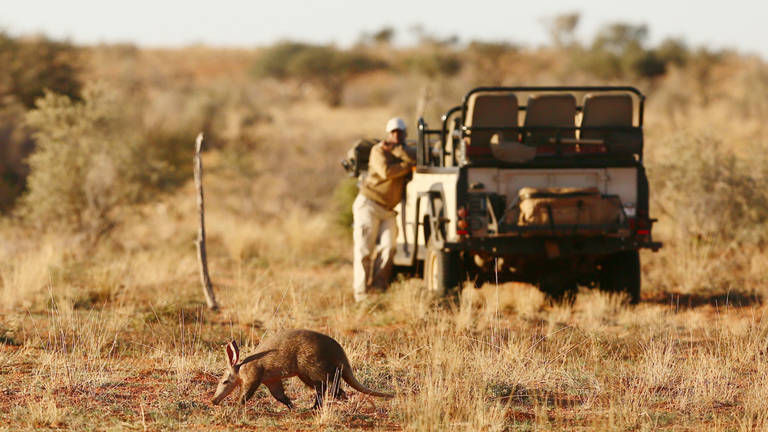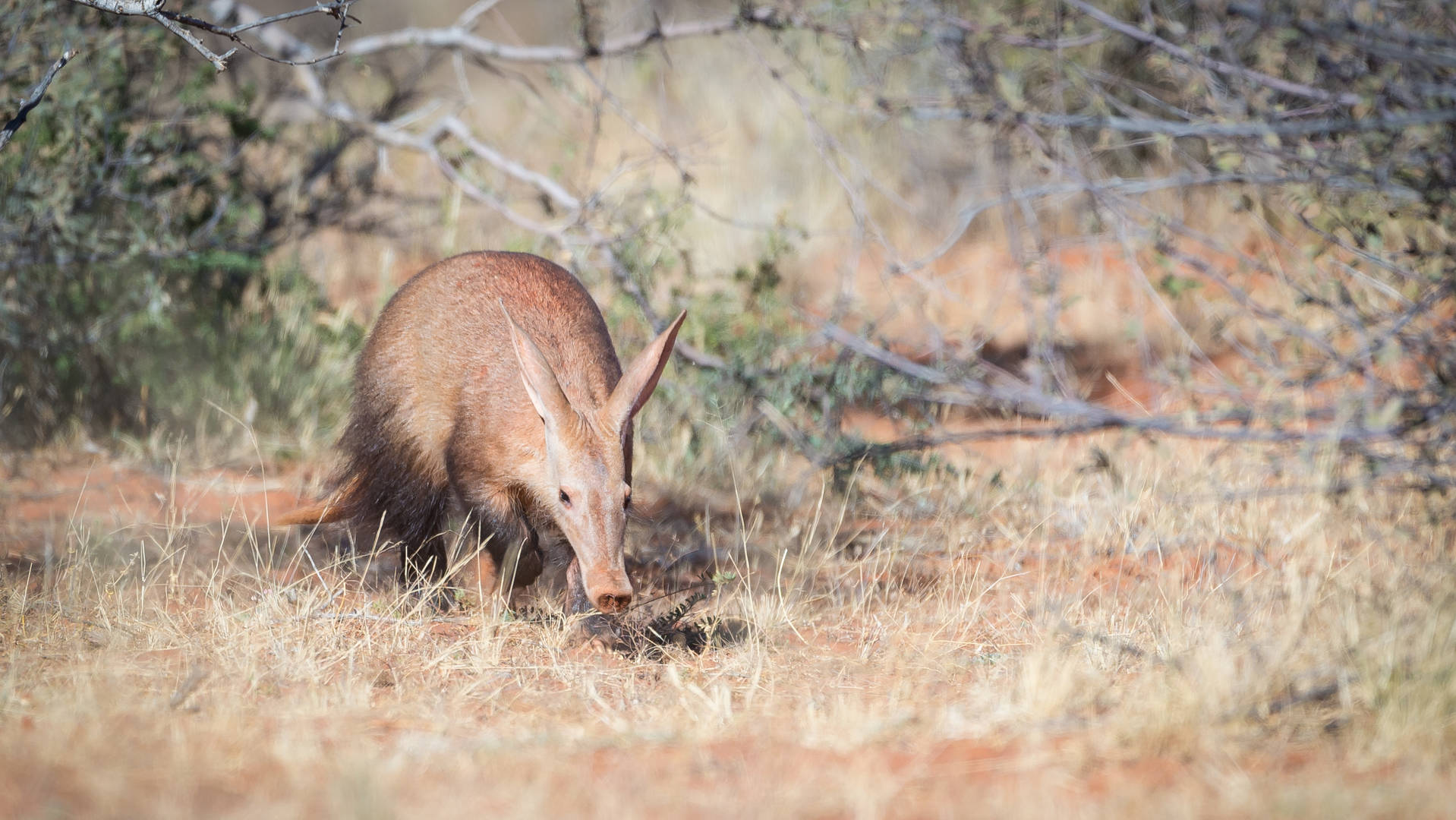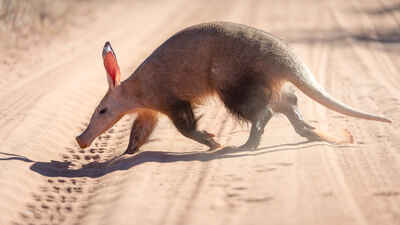Where to see Aardvark in Malawi
The aardvark is one of Africa’s most bizarre and enigmatic animals. A shy, nocturnal termite-eater, signs of its presence may be scattered about the bush but sightings remain an elusive prize.

Quick facts about Aardvark
| Scientific name: | Orycteropus afer | Habitat: | Grassland & woodland |
|---|---|---|---|
| IUCN status: | Least Concern | Adult weight: | 60–80kg |
The Aardvark is unique. Known variously as ‘anteater’, ‘ant-bear’ and ‘earth-pig’ (the latter being the translation of its Afrikaans name), it is not related to these namesakes but belongs to an ancient order of mammals (Tubulidentata), whose closest living relatives are the diminutive elephant shrews. The confusion is understandable: seen above ground, an aardvark appears assembled from other creatures, with a stocky, pig-like body, an anteater’s snout, a kangaroo’s tail and a rabbit’s long ears.
Entirely nocturnal, it inhabits open country, where it lives in burrows by day and emerges after dark to forage alone for ants and termites, using spade-like claws to break into termite mounds and licking up the occupants with its long, sticky tongue. Females give birth to their single cub underground.
50,000
Insects consumed nightly
13 metres
Max. burrow length
30cm
Length of tongue
7 months
Gestation period
Where to see aardvarks in Africa
Aardvarks occur in almost all Africa’s parks and reserves, but you’ll need serious luck to see one. Your only realistic chance is on a night drive – ideally in open terrain and during the southern African winter.
Top tips for viewing aardvarks
Aardvarks are widespread but shy. Their presence is often evident from their burrows, and their diggings around termite mounds. Look out, too, for their distinctive three-toed tracks. To stand any chance of seeing the animal itself, you’ll need to take a night drive. If you get lucky, stay quiet: aardvarks have acute smell and hearing and are quick to bolt for their burrows.
Certain locations are renowned for sightings – notably the semi-arid regions of southern Africa, including South Africa’s Karoo and southern Kalahari, Botswana’s Makgadikgadi Pans and Namibia’s Damaraland.
The cooler, dry-season months are most productive. Even if you don’t find an aardvark, keep an eye on their disused burrows, which may house anything from pythons and porcupines to warthogs and wild cats.

Our best Malawi holidays for aardvark sightings
Based on our travellers' reports, these ideas for Malawi safaris are likely to give the best aardvark sightings

More information about aardvark in our other destinations
Click here for detailed information about aardvark in other countries, including the places for sighting aardvark.













